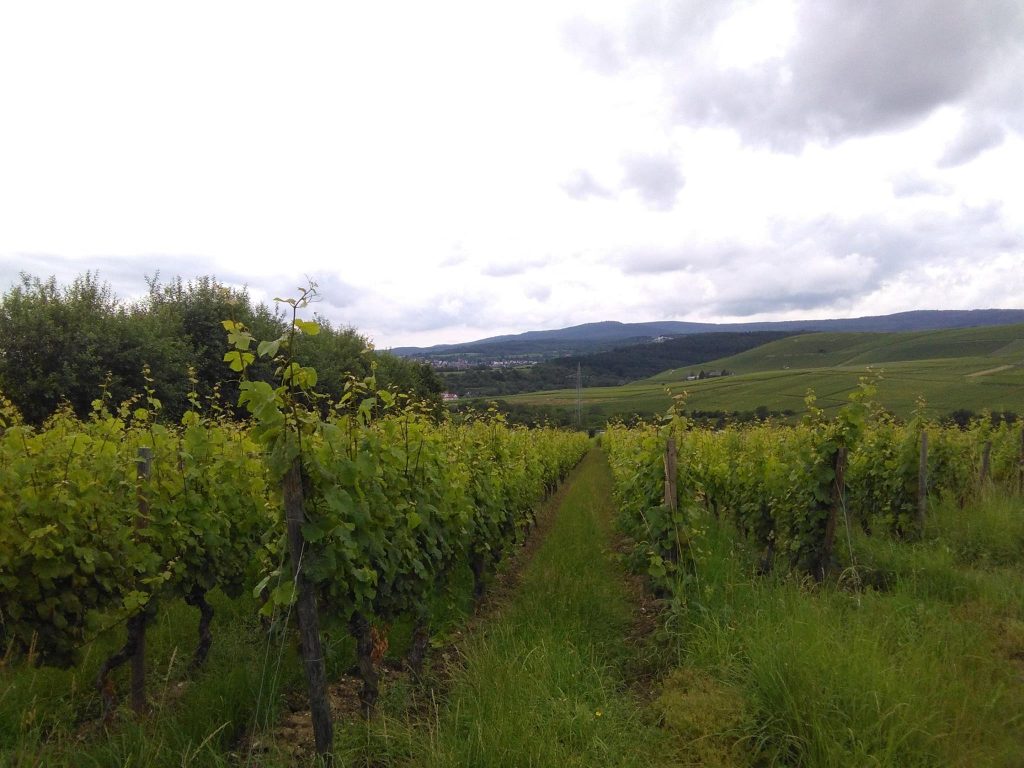
From the August 2017 Desktop News | This spring, UA chemistry students had the opportunity to study abroad in Germany. However, they weren’t taking the usual course load of inorganic or physical chemistry. This group went to learn about the chemistry involved in making wine, called Oenology, as well as a little history behind the drink.
The students participated in UA’s Research and Study Abroad Exchange Program with the Johannes Gutenberg Universität-Mainz in Rheingau, Germany, under the tutelage of UA chemistry professor Dr. Anthony Arduengo.
“The chemistry involved with wine making is complex, but understandable, and provides an important application of organic chemistry to everyday life,” Arduengo said. “The chemistry involved with wine making, brewing, and cooking all represent important aspects of chemistry in everyday life and subjects to which most people can easily relate.
“These subjects represent just a few of the technologies that touch our lives in common ways, and they share a common root in chemistry. It’s important that students of chemistry have opportunities to see and understand the breadth of impact of chemistry on modern and ancient life and culture.”
Throughout the course, students visit historic wine producers like Kloster Eberbach, as well as small, family-owned wineries. In the classroom, they study the organic chemical transformations that result in variations in taste, aroma, and texture of wine—as well as the history.
“There are many important ties between the evolution of modern culture and society and wine,” Arduengo said. “Even ancient cultures like the Greeks and Romans were so strongly influenced by ‘sacred’ wine that deities, such as Dionysus and Bacchus, were seen as responsible for its creation.”
Wine itself dates back to 5400 B.C. Persia, now Iran, where vinifera grapewines are native plants. As wine began to be produced, the people producing it immediately began studying how to produce more, higher quality grapes.
In addition to the Oenology course, Arduengo said for spring 2018, he plans to also offer classes on the chemistry of beer brewing and the chemistry of cooking.
“Presently, the Oenology course is only offered in the overseas setting where the facilities and traditions easily support such an educational enterprise by providing local expertise, sites, and facilities,” Arduengo said. “However, the brewing course, which focuses on beer production, might be a better fit to the local culture and economy of Tuscaloosa, and of course, the chemistry of cooking course could easily be modified to capitalize on southern cooking and local cuisine.”
The Oenology course, CH 473, the chemistry of beer brewing course, CH 474, and the chemistry of cooking course, CH 475, are only offered to upper-level chemistry students.